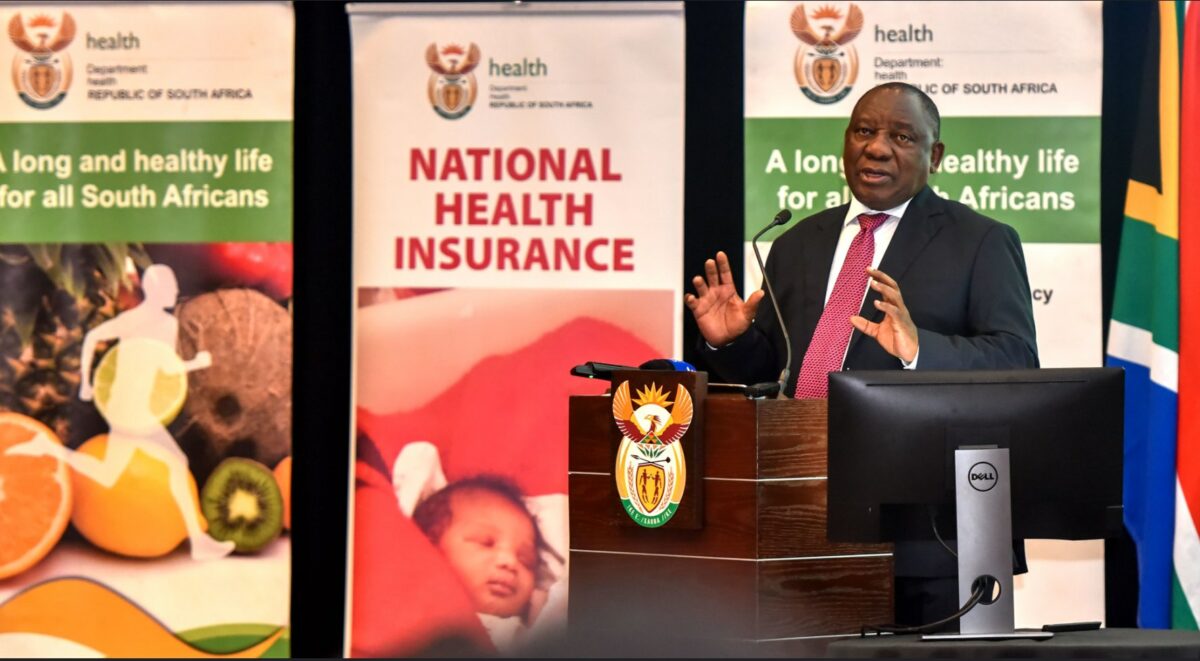The DA today presented the Party’s official submission on the National Health Insurance (NHI) Bill before the parliamentary portfolio committee on health.
The DA’s full presentation can be accessed here.
It is the DA’s view that, in accordance with the global move towards Universal Health Care, South Africa must reform its health system to provide access to quality healthcare for all.
The NHI Bill, however, is the very antithesis of that goal. The Bill will not reach its intended objectives and is not compliant with key constitutional principles or rights.
Constitutional challenges:
- The Bill has massive financial consequences but has not been tagged as a money Bill.
- The exclusion of asylum seekers from enjoying the right to universal access to quality health care services, as purported to achieve by this Bill, undermines Section 27 of the Constitution which states that “everyone” has the right to access health care.
- The documents required to register for the Fund will bar many South Africans from accessing it, essentially excluding them from health care.
- The Bill undermines the separation of powers and provincial authorities by giving unvetted powers to the Health Minister.
- The NHI Bill completely removes the choice for South Africans to choose where to get their healthcare and could effectively outlaw medical aides.
- This Bill does not merely limit these freedoms, but in many respects takes them away.
Other key areas of concern:
- It is unclear which medical services and medications will be covered or excluded under the NHI system.
- The Bill will see the creation of an NHI Fund which will operate as a public entity that will be constituted by the pooling of funds both from the public and private sectors, effectively creating another SOE that will be vulnerable to mismanagement and corruption.
- The NHI compels users of the Fund to adhere to referral pathways as prescribed and will forfeit health care services purchased by the Fund if they fail to these prescribed pathways.
- The Bill imposes conditions on which treatment can be refused, and obtaining a second opinion or seeking alternative forms of treatment will be nearly impossible.
- The Bill states that a healthcare provider must adhere to “treatment protocols and guidelines, including prescribing medicines and procuring health products from the Formulary”. This creates ethical concerns in what and how healthcare providers can treat patients.
- The health system will be fragmented where certain spheres will either be under local, provincial or national government management.
- The Bill allows for the CEO of the NHI Fund to establish an Investigating Unit within the Office of the Fund. Meaning that there will be no independent checks and balances.
- The documents required to register for the Fund will bar many South Africans from accessing it, essentially excluding them from health care.
- The funding of the NHI through tax will not only overburden the rapidly shrinking tax base, but will lead to increased cost of living that will impact everyone, including the poorest of the poor.
- The current accountability measures monitoring the spending of tax is insufficient. This might enable corruption.
- Treasury has stated quite clearly that the NHI is unaffordable.
- The limitation of options for private practitioners might lead to a brain drain of critical skills. The shortage of medical professionals is also of grave concern.
- The political climate under which the Bill was conceived differs vastly from the current one. At the very least, a reassessment must be done.
The DA believes in universal healthcare, but the proposed NHI Bill will only further decimate the public healthcare system. Instead of centralising healthcare and limiting the private sector, the strengths of the private sector should be leveraged to improve public health through partnerships. More effort should also be made to make the regional management model work.
The DA has already put forward its alternative to the NHI Bill. The Party’s Sizani universal Healthcare Plan is based around a universal subsidy for every eligible person in South Africa, allowing them to choose whether to buy private or public sector coverage with their subsidy.
Aspects of this proposal are already implemented in the Western Cape with great success. The province’s mortality rates are half of other provinces, hospitals and clinics are better maintained, and the Western Cape have more specialists per capita than any other province.
Government’s failure to handle the Covid-19 pandemic shows that they would be unable to fully implement, manage and maintain a centralized healthcare system. The pandemic has also shown that corrupt individuals care little whether funding is earmarked for healthcare.

